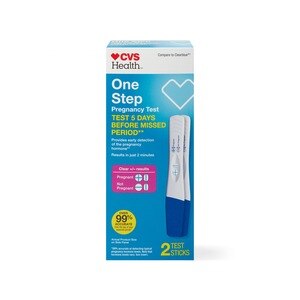
Pharmacy Pregnancy Tests: A Comprehensive Guide
Introduction
Pregnancy is a transformative experience that brings immense joy and responsibility. Knowing whether or not you are pregnant is crucial for making informed decisions about your health and the future of your family. Pharmacy pregnancy tests offer a convenient and accessible way to determine pregnancy status with high accuracy. This comprehensive guide will delve into the intricacies of pharmacy pregnancy tests, empowering you with the knowledge to make informed choices.
Types of Pharmacy Pregnancy Tests
Pharmacy pregnancy tests are primarily classified into two types:
- Urine Pregnancy Tests: These tests detect the presence of human chorionic gonadotropin (hCG) in urine. hCG is a hormone produced by the placenta after implantation of a fertilized egg.
- Blood Pregnancy Tests: These tests measure hCG levels in blood, providing a more sensitive and accurate result than urine tests.
How Do Pharmacy Pregnancy Tests Work?
Pregnancy tests work by detecting hCG, which is produced by the developing placenta after implantation. The tests contain antibodies that bind specifically to hCG. When urine or blood containing hCG comes into contact with the test, the antibodies bind to the hCG, creating a visible line or symbol.
Accuracy and Sensitivity
Pharmacy pregnancy tests are highly accurate, with an overall accuracy rate of over 99%. However, the accuracy can vary depending on factors such as:
- Test timing: Tests are most accurate when taken after a missed period.
- Urine concentration: Dilute urine can affect the test’s accuracy.
- Test quality: Using high-quality tests from reputable manufacturers is essential.
When to Take a Pharmacy Pregnancy Test
The best time to take a pharmacy pregnancy test is after a missed period. If your period is late by even a few days, it is advisable to take a test. However, some tests claim to detect pregnancy earlier, up to a week before the expected period.
How to Use a Pharmacy Pregnancy Test
Using a pharmacy pregnancy test is relatively straightforward:
- Read the instructions carefully: Each test may have specific instructions, so it is crucial to read them thoroughly.
- Collect urine or blood: For urine tests, collect a clean urine sample in a cup. For blood tests, a healthcare professional will draw blood from a vein.
- Apply the sample: Dip the test strip into the urine sample or apply a drop of blood to the designated area on the test.
- Wait for results: The test will typically display results within a few minutes.
Interpreting Results
Pregnancy test results are typically displayed as one or two lines:
- Positive Result: Two lines appear, indicating the presence of hCG and a positive pregnancy result.
- Negative Result: Only one line appears, indicating the absence of hCG and a negative pregnancy result.
False Positives and False Negatives
Although pharmacy pregnancy tests are highly accurate, there is a small chance of false positives or false negatives:
- False Positive: A positive result despite not being pregnant can occur due to factors such as certain medications or medical conditions.
- False Negative: A negative result despite being pregnant can occur if the test is taken too early or if the urine is too dilute.
Limitations
Pharmacy pregnancy tests have some limitations:
- Cannot determine the exact gestational age: They only indicate whether you are pregnant or not.
- Cannot diagnose ectopic pregnancy: An ectopic pregnancy occurs when the fertilized egg implants outside the uterus.
- May not detect very early pregnancies: Some tests may not detect pregnancy until a few days after a missed period.
Follow-Up
If you receive a positive pregnancy test result, it is essential to follow up with a healthcare professional for confirmation and prenatal care. A healthcare professional can also provide guidance on next steps, such as genetic testing or ultrasound.
Additional Considerations
- Cost: Pharmacy pregnancy tests vary in price, but they are generally affordable.
- Availability: Pharmacy pregnancy tests are widely available at pharmacies, grocery stores, and online retailers.
- Privacy: Pharmacy pregnancy tests offer a convenient and private way to determine pregnancy status.
Conclusion
Pharmacy pregnancy tests are a reliable and accessible tool for determining pregnancy status. By understanding the different types, accuracy, and limitations of these tests, you can make informed decisions about your health and reproductive choices. If you have any questions or concerns, do not hesitate to consult a healthcare professional for guidance.